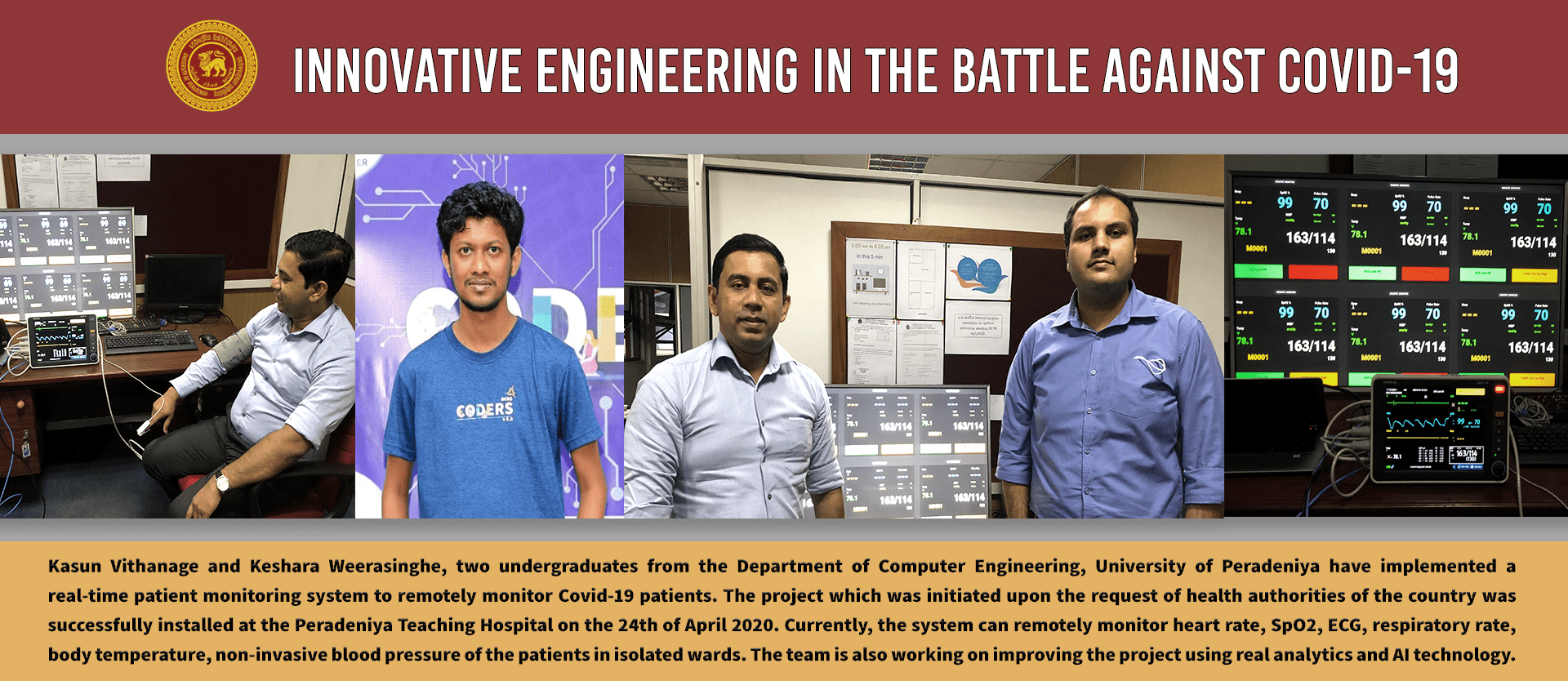The Coronavirus (COVID-19) pandemic is the defining global health crisis of our time. Since its emergence late last year, the virus has now spread around the world including Sri Lanka.
In hospitals, doctors, nurses and other healthcare workers are fighting a prolonged battle against this deadly and highly contagious illness.
When COVID-19 patients are isolated medical workers have to go around the isolation wards to check vital signs of patients from time to time. They have to put on protective gear for this task. Here they are putting themselves at a huge risk since the virus can be infected even from a very small mistake.
Keshara Weerasinghe and Kasun Vithanage, undergraduates from the Department of Computer Engineering, University of Peradeniya have designed and implemented a Real-time Remote COVID-19 Patient Vital Monitoring System for isolation wards. While the medical care front liners are putting their lives on danger every minute, Kasun and Keshara have paired up to bring their engineering knowledge into practice to make a product that is extremely useful in this time of crisis. Not only were they able to develop it as a complete product, but they also have installed it at Teaching Hospital Peradeniya. This method is effective and safer since it reduces unnecessary contact between patients and the staff.
Heart Rate, SpO2, ECG, Respiratory Rate, Body Temperature, Non-Invasive Blood Pressure of the patient are some of the readings that can be monitored by this system. It has a priority-based alarm service that alarms the staff on any critical condition. They are hoping to develop this further by adding real-time analytics, AI to make it a fully featured patient vital monitoring system.
Under normal circumstances, these real-time patient monitoring systems are imported by foreign countries and they usually cost a heavy amount which is hard to be afforded by a developing country like Sri Lanka. With the system implemented by Keshara and Kasun, they believe the same functionalities can be implemented and tested within the hospitals of Sri Lanka at a minimal cost.
Hard work, dedication, and using their knowledge, skills, and building something that can make the world better and save people’s lives in the time of need is the highest one can expect from a university undergraduate. Keshara and Kasun did their best to support our frontline in the battle against this virus.
Kasun and Keshara’s project has set up an example for all the undergraduates of the country to realize what they are capable of. They have shown that with good motive and proper commitment, they could help each other and help to provide solutions for any difficult solution without relying only on the facilities one could get.
They are especially thankful to the lecturers of the Department of Computer Engineering for their guidance, support, and encouragement. They are also grateful for the support given by Doctor Sudarshana Wickramasinghe and others who helped them immensely with medical guidance and support.
For more info: https://youtu.be/eKU_VtAaXtU
Article written by : Dasuni Pamoda




